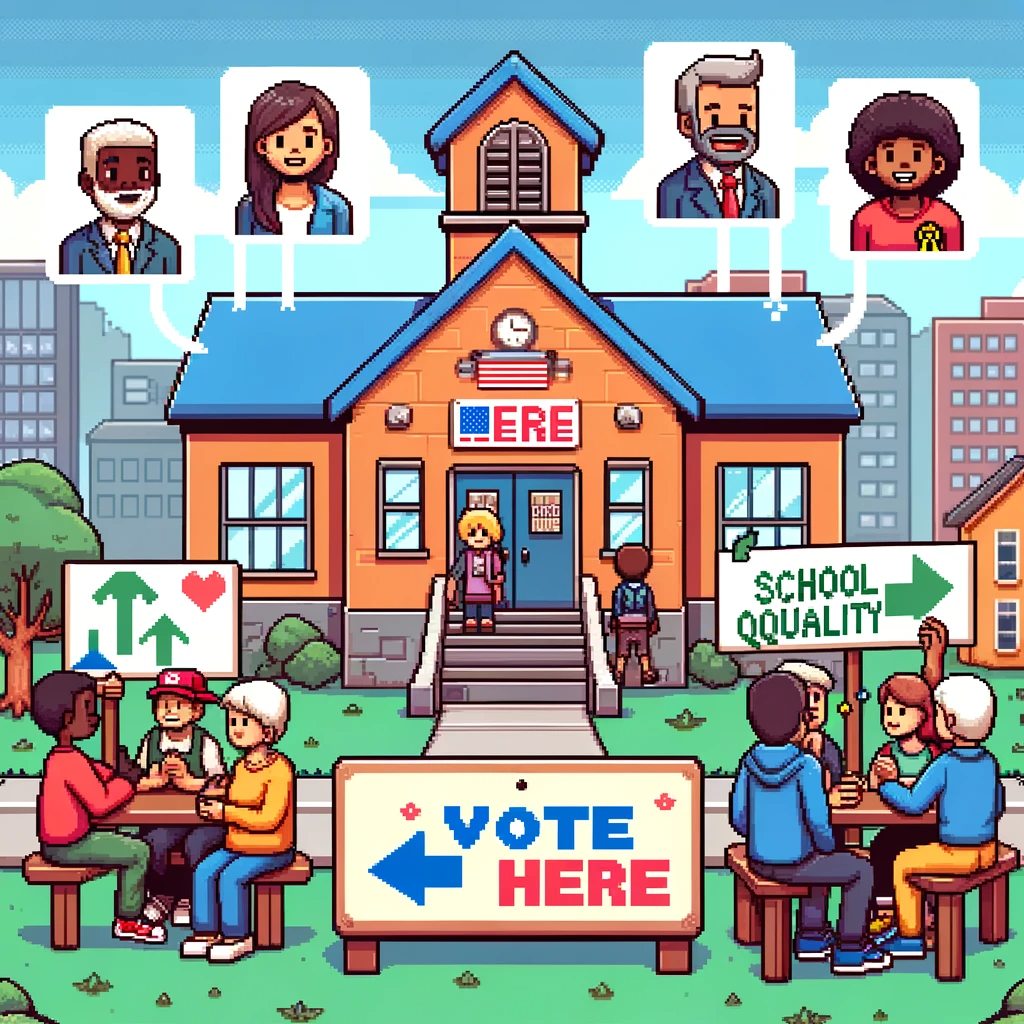
The Impact of School Board Elections on Local Communities
Understanding the Article: “Self-Interest in Public Service: Evidence from School Board Elections”
Can you believe that we’re going to be starting up yet another election cycle?!
In public service, the motivations and actions of elected officials are often scrutinized for their impact on the community. A fascinating study titled “Self-Interest in Public Service: Evidence from School Board Elections” by Stephen B. Billings, Hugh Macartney, Geunyong Park, and John D. Singleton provides a unique lens into how school board elections affect local communities, particularly in terms of home values and school quality.
The Findings at a Glance
The study reveals that the election of a new school board member can significantly increase home values in their neighborhood, particularly for non-Democratic members, with an average appreciation of about 4%. Interestingly, while student test scores in these neighborhoods also saw an uptick, this was more due to changes in student composition and manipulation of attendance zones rather than actual improvements in school quality.
Implications for School Psychologists and Mental Health Advocates
- Understanding Motivations: The study suggests that partisan affiliations might influence members’ motivations and decisions, impacting local school quality and neighborhood demographics. School psychologists must understand these underlying dynamics to advocate for policies that improve student well-being.
- Community Dynamics: With changes in home values and school demographics following elections, mental health professionals must consider the broader community context when addressing student needs. The changing landscape can affect student’s stability and access to resources.
- Engagement in Policy: The findings underscore the importance of engaging in local elections and understanding candidates’ platforms. School psychologists and mental health advocates can play crucial roles in educating the community about the stakes of school board elections.
Conclusion
The study provides valuable insights into the tangible effects of school board elections on local communities. It’s a call to action for educators, psychologists, and community members to understand the deeper implications of these elections and engage in informed advocacy to benefit students and the broader community.
As we navigate these findings, informed voting and community engagement have never been more crucial in shaping the quality of education and neighborhood well-being.


